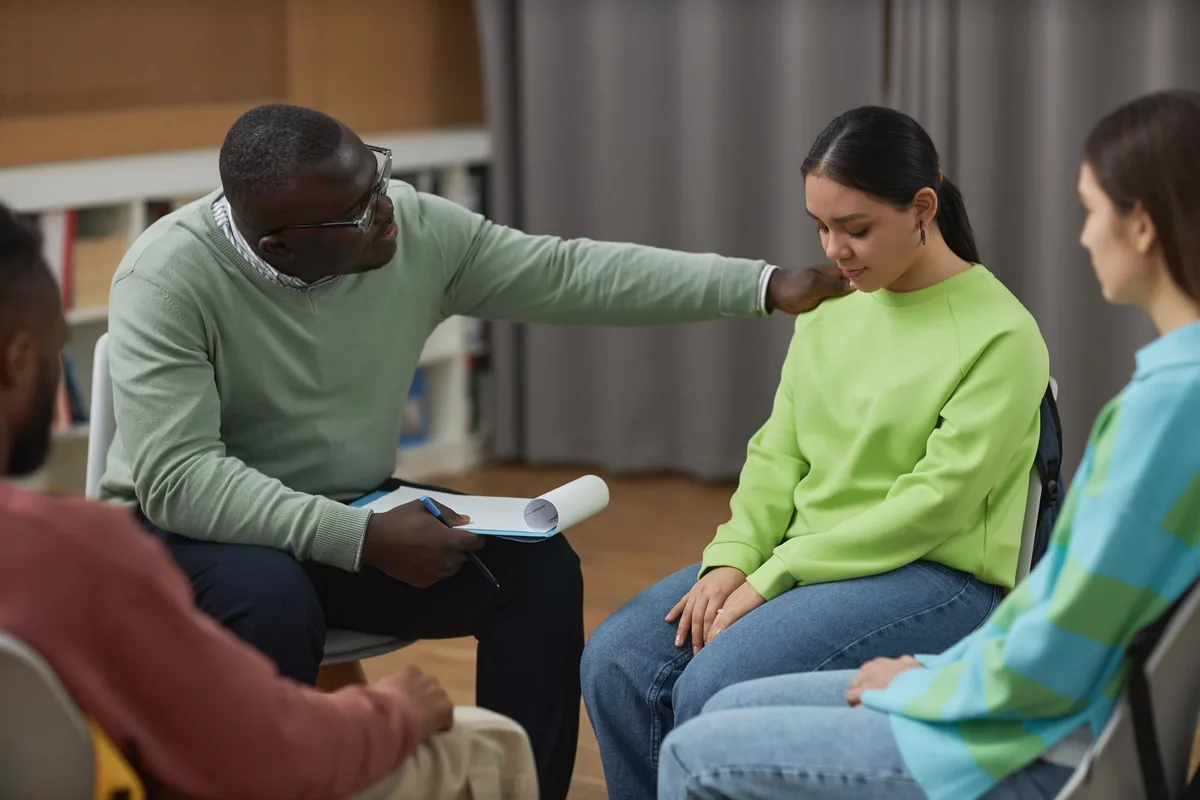24/7 Helpline:
(866) 899-111424/7 Helpline:
(866) 899-1114
Learn more about Depression Treatment centers in Pine Prairie

Other Insurance Options

Group Health Incorporated

Health Partners

Private insurance

Evernorth

Medical Mutual of Ohio
Beacon

AllWell

Carleon

Providence

Anthem

Self-pay options

BlueCross

BlueShield

Sutter

Highmark

Magellan

Access to Recovery (ATR) Voucher

Regence

MHNNet Behavioral Health

Oxford

Compass Behavioral Center
Compass Behavioral Center is a private rehab located in Mamou, Louisiana. Compass Behavioral Center ...















Ville Platte Behavioral Health Clinic
Ville Platte Behavioral Health Clinic by Acadiana Area Human Services District provides comprehensiv...











































